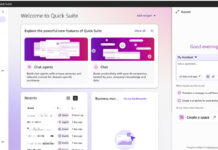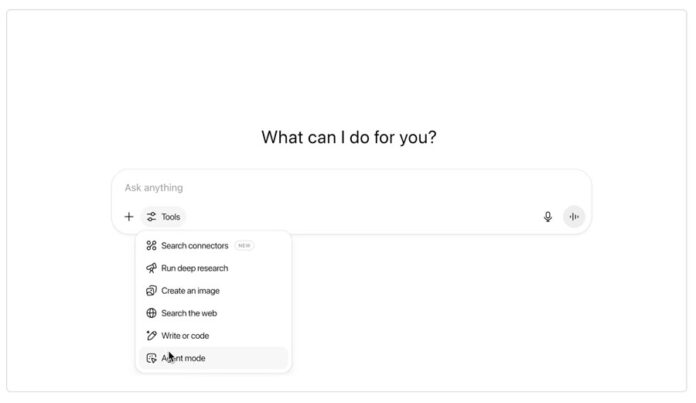IBL News | New York
OpenAI debuted ChatGPT Agent yesterday, joining the hyped trend of agents —tools that autonomously complete multi-step tasks and workflows.
This new agent, still in beta, can perform tasks, following users’ instructions, on its own OpenAI virtual computer by intelligently navigating websites, filtering results, requesting secure logins when needed, running code, conducting analysis, and even delivering editable slideshows and spreadsheets that summarize its findings.
Some examples of handled requests provided by OpenAI include:
• “Look at my calendar and brief me on upcoming client meetings based on recent news.”
• “Plan and buy ingredients to make a Japanese breakfast for four.”
• “Analyze three competitors and create a slide deck.”
At work, users can automate repetitive tasks, such as converting screenshots or dashboards into presentations composed of editable vector elements, rearranging meetings, planning and booking offsites, and updating spreadsheets with new financial data while maintaining the same formatting. In personal life, users can use it to plan and book travel itineraries, design and book entire dinner parties, or find specialists and schedule appointments.

ChatGPT Agent is a unified agentic system that combines the strengths of three earlier breakthroughs: the Operator’s ability to interact with websites, deep research’s skill in synthesizing information, and ChatGPT’s intelligence and conversational fluency.
The agent can also leverage ChatGPT connectors, which enable it to integrate with apps like Gmail and GitHub, allowing ChatGPT to find information relevant to your prompts and utilize it in its responses.
OpenAI’s Pro, Plus, and Team paid users can activate ChatGPT Agent directly through the tools dropdown by selecting ‘agent mode’. Enterprise and Education users will gain access in the coming weeks. Pro users receive 400 messages per month. In comparison, other paid users are limited to 40 messages monthly, with additional usage available via flexible credit-based options.
The service isn’t available in the EU and Switzerland.

 En Español
En Español












![OpenAI Released Apps that Work Inside ChatGPT and an SDK [Video]](https://iblnews.org/wp-content/uploads/2025/10/openaieventday-218x150.jpg)








